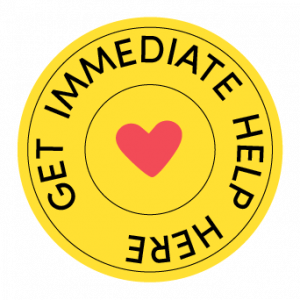

Being Aware of Mental Health Services & Supports
Most campuses have many resources to support students and educators with their mental health. The first step in accessing these resources is knowing about the resources and normalizing them. Educators can familiarize themselves with mental health support for themselves as employees as well as those that are available for students. This way educators will be in a good position to point students in the right direction.
Beyond campus, many national mental health organizations have support for young adults, including many peer supports.
Educators can build campus mental health supports into their core course materials, giving students easily accessible resources. Further, simply having the information front and center is supportive in itself because it signals that their educator takes mental health seriously.
When putting mental health information into course materials, or discussing it in general, it’s important to remember that the tone is almost as important as the information. As far as possible, try to communicate with a warm, understanding tone.
Educators can build campus mental health supports into their core course materials, giving students easily accessible resources. Further, simply having the information front and center is supportive in itself because it signals that their educator takes mental health seriously.
When putting mental health information into course materials, or discussing it in general, it’s important to remember that the tone is almost as important as the information. As far as possible, try to communicate with a warm, understanding tone.
Example of a Syllabus Statement
At ______ College/University, we know students often experience issues that may interfere with their lives and their academic success.
These can include:
- Academic or work stress
- Sleep issues
- Financial concerns
- Relationship concerns
- Feelings of anxiety, hopelessness, or depression
If you feel like you’re struggling, or just need to talk, we encourage you to seek support. Confidential and free resources are available on campus:
- If you are struggling with this class, please visit during office hours or contact me by email at _______.
- Check in with your academic advisor if you are struggling in multiple classes or if you have any questions about available academic resources. If you do not know who your academic advisor is, please visit the academic advisor office.
- Counseling services are available on campus both for appointments or in times of crisis. Please call ______ or visit the Counseling Service department in person at the _______ building.
- If in crisis, call or text 988, the national hotline for mental health or substance use emergencies
Educators can also provide students with information about nationally recognized mental health supports. The National Alliance on Mental Illness (NAMI), The Jed Foundation (both are co-creators of this guide) and Active Minds are excellent resources.
These organizations offer resources and peer support. For example, NAMI offers resources for college students in the form of NAMI on Campus, articles written by students detailing their personal mental health experiences, and countless resources online for young adults as they navigate their adult lives. These peer-based resources have particular value because they help students understand that they’re not alone in their struggles.